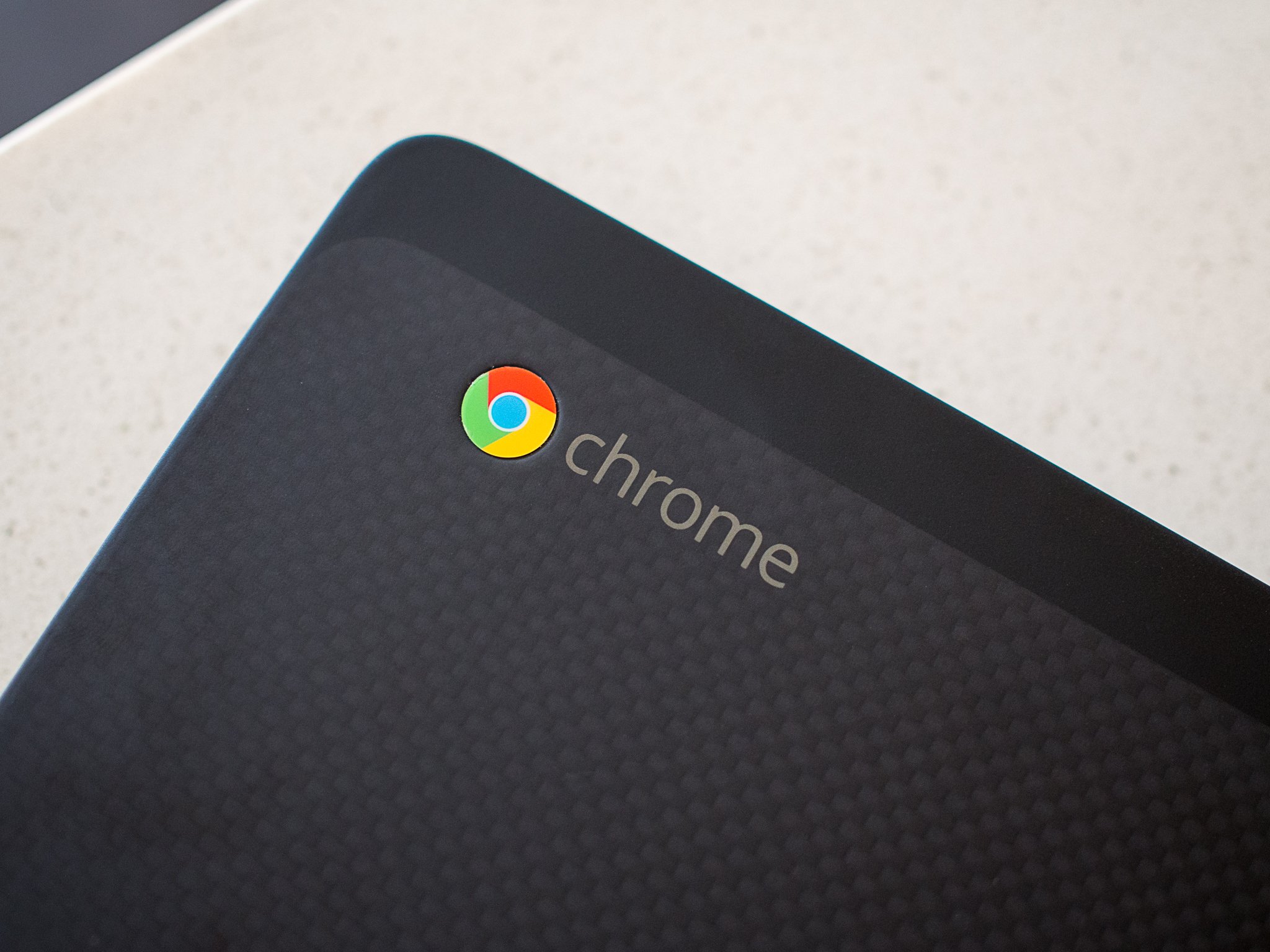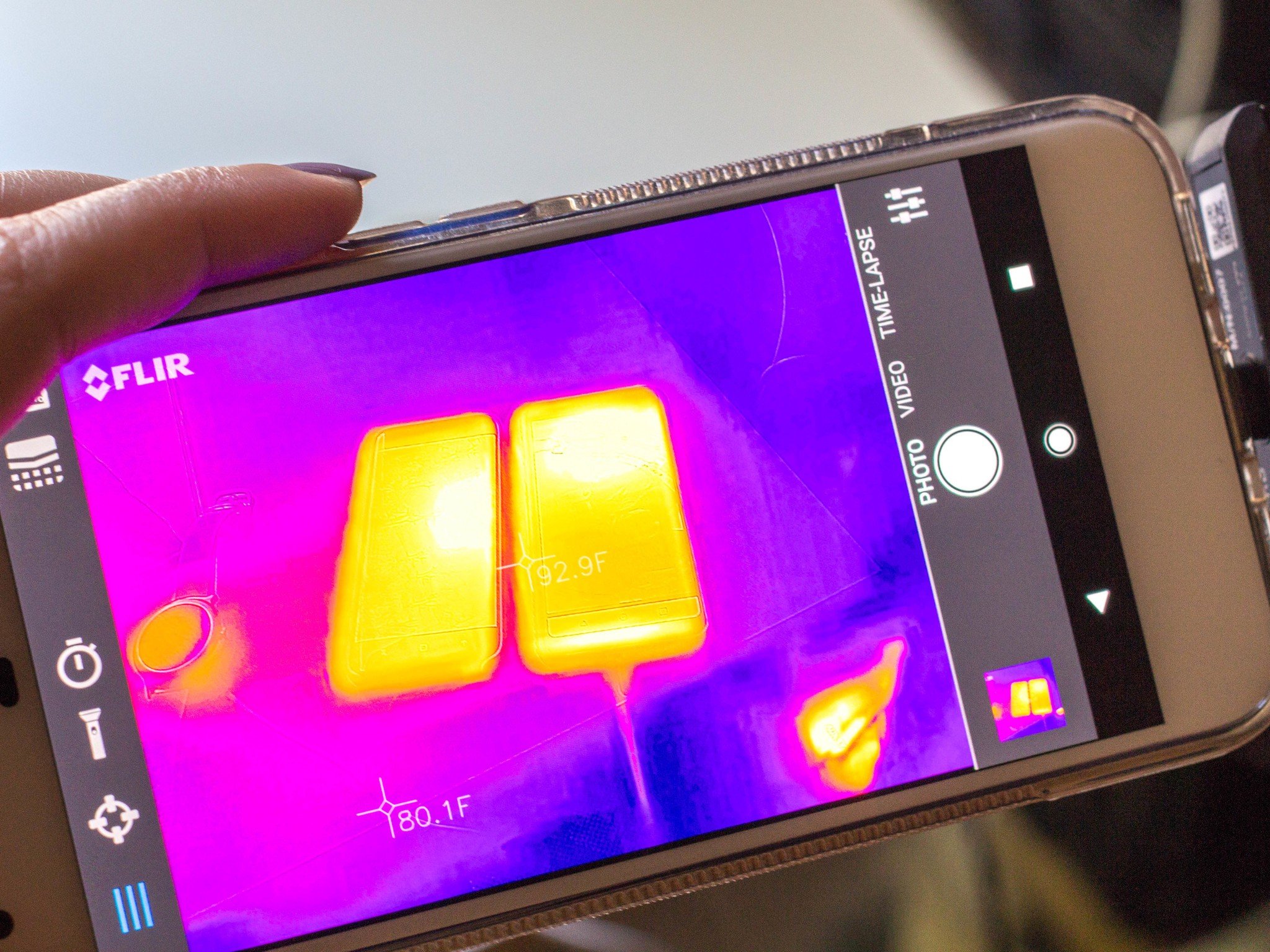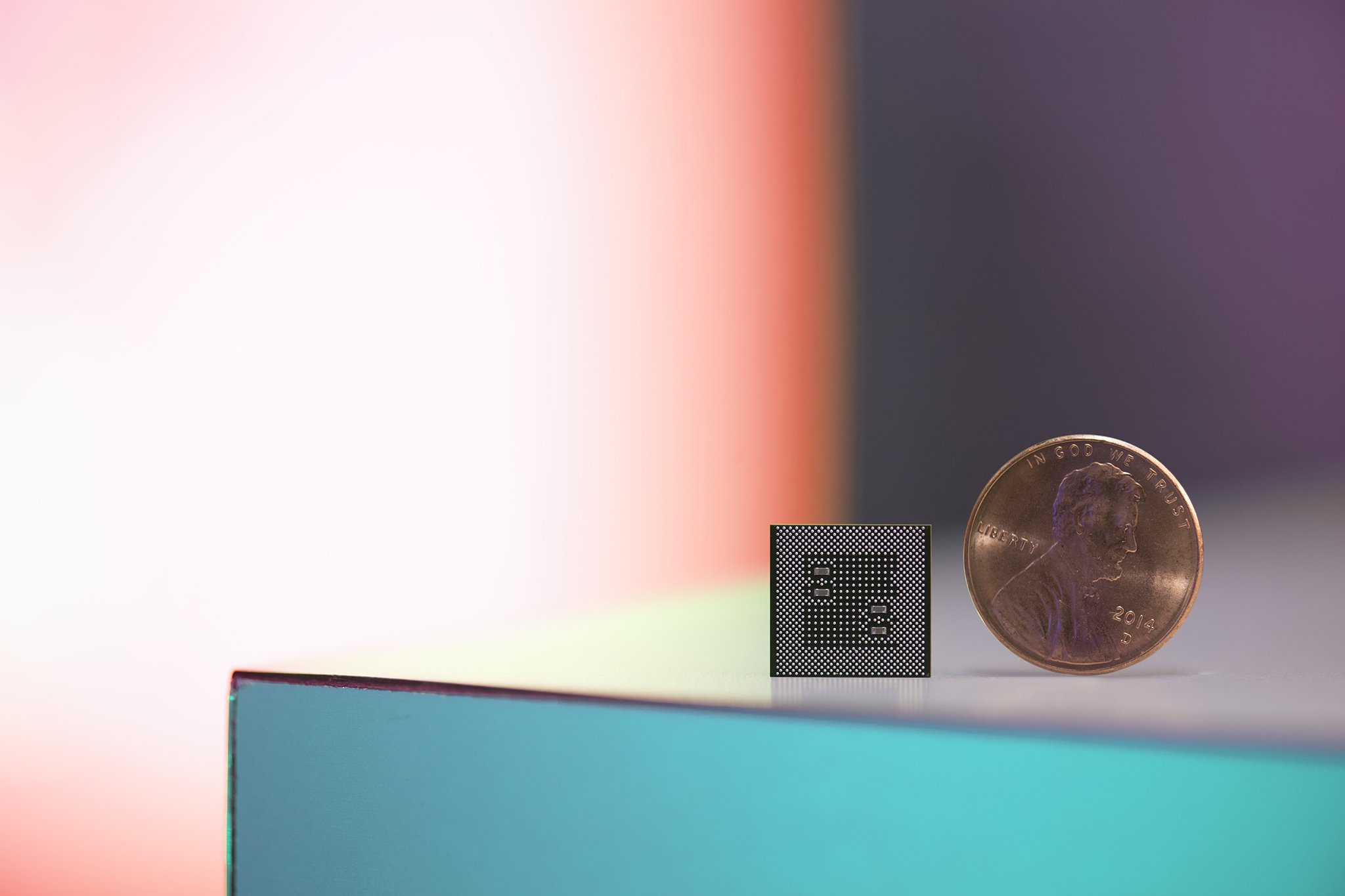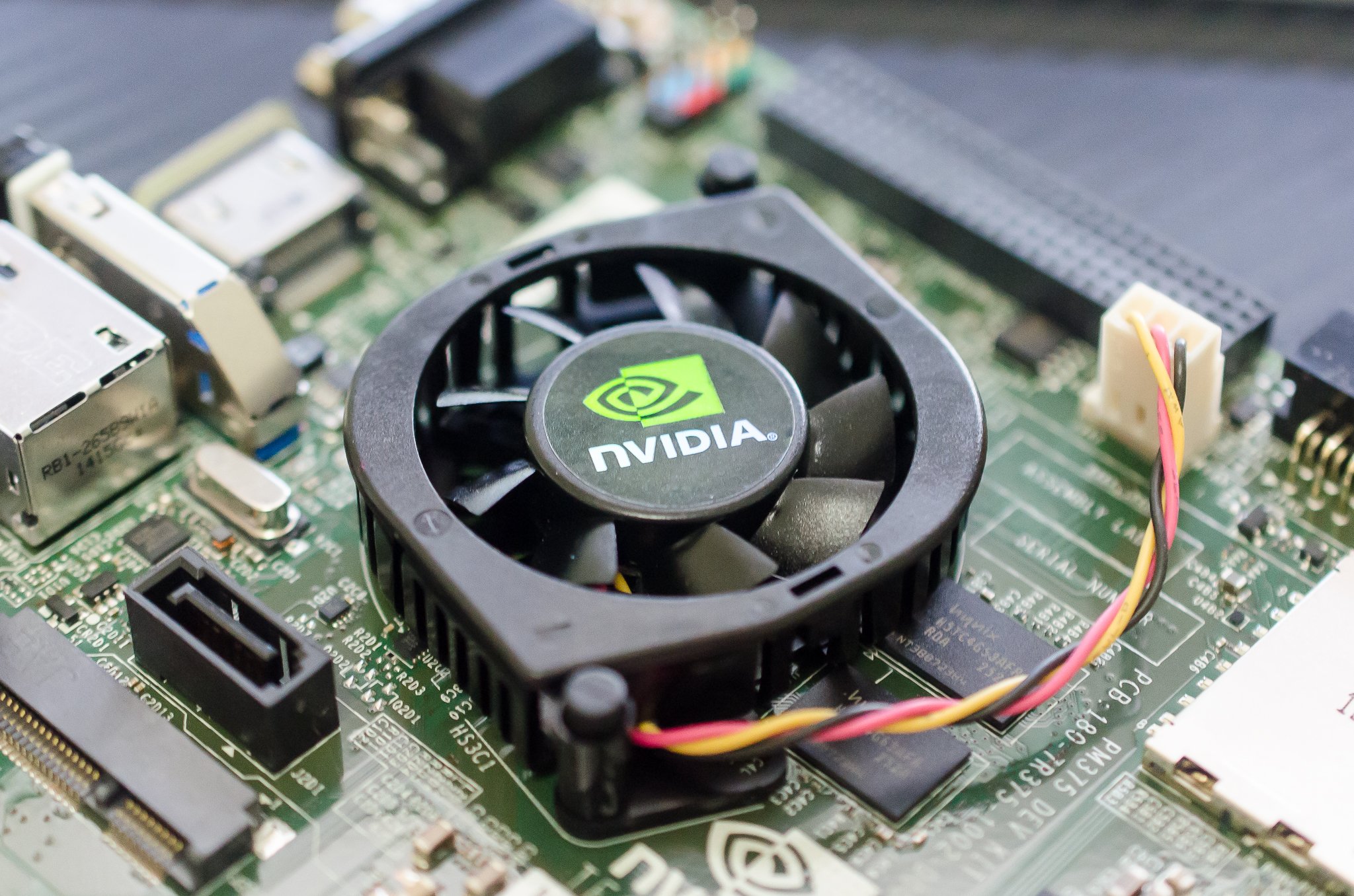 Electronics all have one thing in common: how you handle the heat makes all the difference when it comes to performance.
We've seen or heard about two really interesting developments when it comes to smart devices recently. The first is that Qualcomm and Microsoft have hooked up and plan to birth some Windows 10 products that run on a Snapdragon processor and promise they will make us happy when it comes to how well they perform. The second is that Samsung has taken an interest in using Android on the desktop and instead of just showing some proof-of-concept video it released the DeX dock.
ARM chips aren't making good Windows laptops cheap like many hoped, but they will be easy on the battery and have better connectivity.
The jury is still out on the first claim. Companies have announced their 2018 ARM Windows laptops, and like ASUS' upcoming NovaGo, they sound promising even though they aren't quite as inexpensive as people had hoped for. They'll make their way into the hands of people who love to hate things and we'll find out everything wrong with them soon enough, which means we'll also know everything good about them. Critical reviews and reviewers can be super helpful when you're looking at an entirely new thing.
We have had a chance to play with DeX. Issues with the design of the first dock aside, the idea has shown some real promise. Samsung has made the transition from a small screen to a larger screen fairly well, and on the software side, the usability issues are mostly an Android fault or an app fault because things were made for a smaller display. A bigger issue is on the hardware side, and it turns out that even the best and fastest phone hardware can get pretty laggy and perform poorly when you try to scale it to the desktop.
We have a third thing that's not very new but ties right in with these two. Chromebooks that use ARM hardware have been available for a while, and in 2017 they proved that they can be pretty damn awesome when it comes to performance. Even ARM hardware that's a lot weaker on the spec sheet than the Snapdragon 835 Samsung's using with DeX. I'm betting Windows 10 will be the same way. This leads us to the big question: Why?
It's getting hot in here
Electronics all have one thing in common: how you handle the heat makes all the difference when it comes to performance.
We've seen or heard about two really interesting developments when it comes to smart devices recently. The first is that Qualcomm and Microsoft have hooked up and plan to birth some Windows 10 products that run on a Snapdragon processor and promise they will make us happy when it comes to how well they perform. The second is that Samsung has taken an interest in using Android on the desktop and instead of just showing some proof-of-concept video it released the DeX dock.
ARM chips aren't making good Windows laptops cheap like many hoped, but they will be easy on the battery and have better connectivity.
The jury is still out on the first claim. Companies have announced their 2018 ARM Windows laptops, and like ASUS' upcoming NovaGo, they sound promising even though they aren't quite as inexpensive as people had hoped for. They'll make their way into the hands of people who love to hate things and we'll find out everything wrong with them soon enough, which means we'll also know everything good about them. Critical reviews and reviewers can be super helpful when you're looking at an entirely new thing.
We have had a chance to play with DeX. Issues with the design of the first dock aside, the idea has shown some real promise. Samsung has made the transition from a small screen to a larger screen fairly well, and on the software side, the usability issues are mostly an Android fault or an app fault because things were made for a smaller display. A bigger issue is on the hardware side, and it turns out that even the best and fastest phone hardware can get pretty laggy and perform poorly when you try to scale it to the desktop.
We have a third thing that's not very new but ties right in with these two. Chromebooks that use ARM hardware have been available for a while, and in 2017 they proved that they can be pretty damn awesome when it comes to performance. Even ARM hardware that's a lot weaker on the spec sheet than the Snapdragon 835 Samsung's using with DeX. I'm betting Windows 10 will be the same way. This leads us to the big question: Why?
It's getting hot in here
 An LG G6 and Galaxy S8 as seen by a Flir thermal Imaging camera.
For starters, I think Samsung did a great job with DeX version one and really hope they keep on it. Remember, the original Galaxy Note was, well, crap. Even T-Mobile decided they didn't want it and as someone who had a T-Mobile Note under NDA to test and review, I can't blame them. Like the Note, DeX is a thing that is a solid idea and only needs to be refined. Look for version two to be better, version three to be really interesting, and version four to be a thing everyone can buy once Samsung tames the software side down so that the hardware can support it.
Don't bail on DeX; remember this is Samsung and Samsung doesn't like to quit on anything.
And that's what Samsung will need to do because there's more to computer hardware than just the parts themselves. The biggest factor in how anything with any processor performs is heat. Specifically, how you get rid of it. Samsung will need to make DeX less hungry so the processor can keep up without running full-tilt right up until it's throttled back so it doesn't damage itself.
If you'ever looked at the circuit board inside a phone you know that there are a lot of parts in very close proximity to each other. Inside the Snapdragon SoC (System on Chip) this goes to the extreme. You'll find a CPU, a GPU, two wireless modems, a Bluetooth controller, a DAC, two DSPs, the power supply integrated circuitry and more. A lot more. All inside a case the size of a postage stamp. Each of these parts is designed to handle temperatures somewhere around 80 degrees Celsius (~180 degrees F) for short periods of time, but for extended periods should run a good bit cooler so the microscopic logic gates inside and the delicate tracing (think wiring) between them doesn't fry.
You need smart software and air conditioning
An LG G6 and Galaxy S8 as seen by a Flir thermal Imaging camera.
For starters, I think Samsung did a great job with DeX version one and really hope they keep on it. Remember, the original Galaxy Note was, well, crap. Even T-Mobile decided they didn't want it and as someone who had a T-Mobile Note under NDA to test and review, I can't blame them. Like the Note, DeX is a thing that is a solid idea and only needs to be refined. Look for version two to be better, version three to be really interesting, and version four to be a thing everyone can buy once Samsung tames the software side down so that the hardware can support it.
Don't bail on DeX; remember this is Samsung and Samsung doesn't like to quit on anything.
And that's what Samsung will need to do because there's more to computer hardware than just the parts themselves. The biggest factor in how anything with any processor performs is heat. Specifically, how you get rid of it. Samsung will need to make DeX less hungry so the processor can keep up without running full-tilt right up until it's throttled back so it doesn't damage itself.
If you'ever looked at the circuit board inside a phone you know that there are a lot of parts in very close proximity to each other. Inside the Snapdragon SoC (System on Chip) this goes to the extreme. You'll find a CPU, a GPU, two wireless modems, a Bluetooth controller, a DAC, two DSPs, the power supply integrated circuitry and more. A lot more. All inside a case the size of a postage stamp. Each of these parts is designed to handle temperatures somewhere around 80 degrees Celsius (~180 degrees F) for short periods of time, but for extended periods should run a good bit cooler so the microscopic logic gates inside and the delicate tracing (think wiring) between them doesn't fry.
You need smart software and air conditioning
 A Qualcomm Snapdragon 835 is smaller than a penny and much more useful.
When you design the software kernel (that's the brain of an operating system and what interfaces the software you're using with all the hardware needed to show it to you) you make sure that the temperature of any chips that might get hot is being monitored and then make sure you do something to keep them from overheating. When you're dealing with a CPU, the thing you do to keep it from happening is to slow down the clock speed of the individual cores inside it. The clock speed is what decides how many things can be processed each second, and when you process fewer things per second the software becomes slower to respond. If you've ever heard the phrase "CPU bound" that's what this is — the software cannot perform any faster because the CPU cores can not process it any faster.
Throttle: throt·tle /THrädl/ verb That word we hate to hear but also keeps our phones from catching fire.
Android is not the most well-optimized software in the world (I hear a software engineer laughing somewhere) but it's getting there. Google, hardware vendors, and the companies who make Android phones are working hard at it with every new release. Chrome OS is also not the most well-optimized software but once again Google and its partners are also working hard and making it better all the time. But even if the two were equal when it comes to how well the software runs on the hardware, a Chromebook will always outperform a phone with the same hardware because a Chromebook can better handle the heat.
Look at the size of each for the simple answer. More room equals more air which equals cooler temps because the heat can better dissipate. A larger circuit board and more space inside a case also mean the parts that move the heat away from the CPU can be designed "better" and heatsinks (metal pieces that come in contact with the CPU to absorb so of its heat) are more efficient. Without adding a fan, it's fairly trivial from an engineering viewpoint to move the heat away by building a better heatsink inside a Chromebook simply because you have more room. This is why Chrome always could outperform any phone using the same ARM version hardware, even if that hardware wasn't nearly as robust as what was on the phone. The refinement of Chrome OS has made it run beautifully on even the cheapest (and I mean that both ways; inexpensive and of lesser quality) chips.
ARM chips are workhorses
A Qualcomm Snapdragon 835 is smaller than a penny and much more useful.
When you design the software kernel (that's the brain of an operating system and what interfaces the software you're using with all the hardware needed to show it to you) you make sure that the temperature of any chips that might get hot is being monitored and then make sure you do something to keep them from overheating. When you're dealing with a CPU, the thing you do to keep it from happening is to slow down the clock speed of the individual cores inside it. The clock speed is what decides how many things can be processed each second, and when you process fewer things per second the software becomes slower to respond. If you've ever heard the phrase "CPU bound" that's what this is — the software cannot perform any faster because the CPU cores can not process it any faster.
Throttle: throt·tle /THrädl/ verb That word we hate to hear but also keeps our phones from catching fire.
Android is not the most well-optimized software in the world (I hear a software engineer laughing somewhere) but it's getting there. Google, hardware vendors, and the companies who make Android phones are working hard at it with every new release. Chrome OS is also not the most well-optimized software but once again Google and its partners are also working hard and making it better all the time. But even if the two were equal when it comes to how well the software runs on the hardware, a Chromebook will always outperform a phone with the same hardware because a Chromebook can better handle the heat.
Look at the size of each for the simple answer. More room equals more air which equals cooler temps because the heat can better dissipate. A larger circuit board and more space inside a case also mean the parts that move the heat away from the CPU can be designed "better" and heatsinks (metal pieces that come in contact with the CPU to absorb so of its heat) are more efficient. Without adding a fan, it's fairly trivial from an engineering viewpoint to move the heat away by building a better heatsink inside a Chromebook simply because you have more room. This is why Chrome always could outperform any phone using the same ARM version hardware, even if that hardware wasn't nearly as robust as what was on the phone. The refinement of Chrome OS has made it run beautifully on even the cheapest (and I mean that both ways; inexpensive and of lesser quality) chips.
ARM chips are workhorses
 The chip that powers the Nexus 9 makes for a powerful industrial and scientific machine once you add a fan and proper heatsink.
We tend to think of ARM processors as something you only use when another chip from Intel or AMD isn't an option because they aren't as good. That's wrong on every level. Companies like Google use ARM chips in the servers that power the internet, companies like NVIDIA use ARM chips to process some insanely complicated machine vision and artificial intelligence applications, and on a small scale, things like your wireless router use an ARM chip because it's more power efficient when processing small bursts of data coming very quickly. ARM chips can be just as good or better than traditional X86 CPUs.
ARM chips power Google's Neural Network hardware, which is almost as power-hungry as the Facebook app.
The Nexus 9 is a great example of this. Initially, we all were impressed with the NVIDIA chipset inside the Nexus 9 when it came to performance. But once we were able to use it more regularly, we saw a different thing; it would run hot, throttle back and was generally a hot mess. Take that same Tegra K1 SoC and put it on a Jetson development board and you have an entirely different beast. I have one here and use it as the core of a multimedia streaming server because it sips power and never bogs down. With a proper channel for heat dissipation, it delivers performance in the same league as an Intel Core i5 using about 80% less power.
ARM processors for Windows 10 laptops and tablets will have some speed bumps, much like we saw with ARM-powered Chromebooks. But I predict they'll be a smashing success because they can offer a high-performance experience, better connectivity, and amazing battery life; just like they do on our smartphones. But unlike our smartphones, there won't be as much impact from heat and that means our phones can't ever reach the same level of performance we see from Chromebooks today and Windows 10 laptops tomorrow.
Chromebooks
The best Chromebooks
Should you buy a Chromebook?
Google Play is coming to Chromebooks
Acer Chromebook 14 review
Join our Chromebook forums
The chip that powers the Nexus 9 makes for a powerful industrial and scientific machine once you add a fan and proper heatsink.
We tend to think of ARM processors as something you only use when another chip from Intel or AMD isn't an option because they aren't as good. That's wrong on every level. Companies like Google use ARM chips in the servers that power the internet, companies like NVIDIA use ARM chips to process some insanely complicated machine vision and artificial intelligence applications, and on a small scale, things like your wireless router use an ARM chip because it's more power efficient when processing small bursts of data coming very quickly. ARM chips can be just as good or better than traditional X86 CPUs.
ARM chips power Google's Neural Network hardware, which is almost as power-hungry as the Facebook app.
The Nexus 9 is a great example of this. Initially, we all were impressed with the NVIDIA chipset inside the Nexus 9 when it came to performance. But once we were able to use it more regularly, we saw a different thing; it would run hot, throttle back and was generally a hot mess. Take that same Tegra K1 SoC and put it on a Jetson development board and you have an entirely different beast. I have one here and use it as the core of a multimedia streaming server because it sips power and never bogs down. With a proper channel for heat dissipation, it delivers performance in the same league as an Intel Core i5 using about 80% less power.
ARM processors for Windows 10 laptops and tablets will have some speed bumps, much like we saw with ARM-powered Chromebooks. But I predict they'll be a smashing success because they can offer a high-performance experience, better connectivity, and amazing battery life; just like they do on our smartphones. But unlike our smartphones, there won't be as much impact from heat and that means our phones can't ever reach the same level of performance we see from Chromebooks today and Windows 10 laptops tomorrow.
Chromebooks
The best Chromebooks
Should you buy a Chromebook?
Google Play is coming to Chromebooks
Acer Chromebook 14 review
Join our Chromebook forums
source: https://www.androidcentral.com/why-arm-processor-chromebook-isnt-same-arm-processor-your-phone
date: Thu, 22 Feb 2018 14:00:02 +0000
Comments
Post a Comment